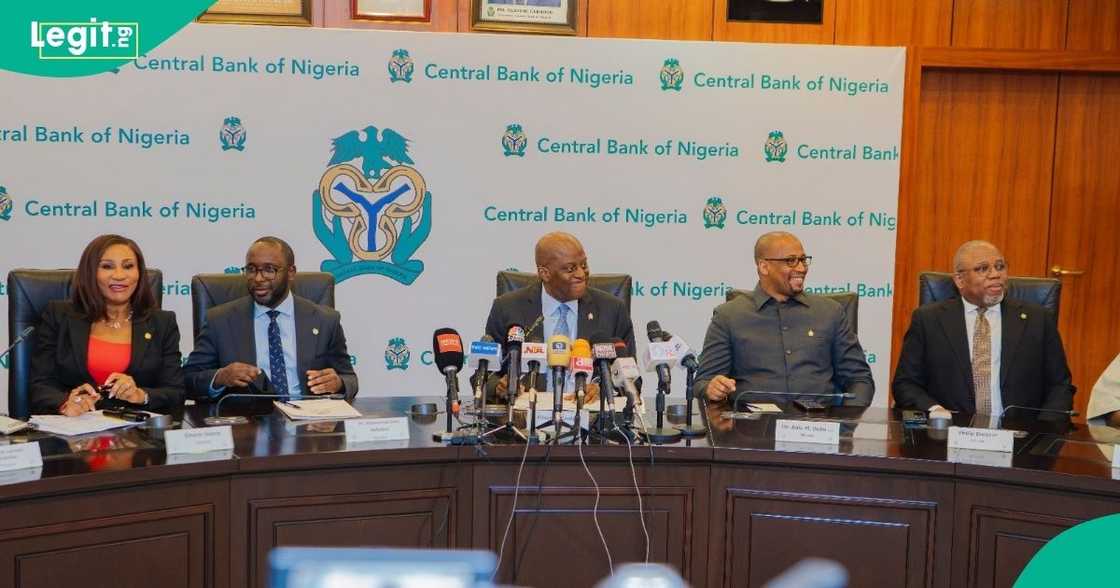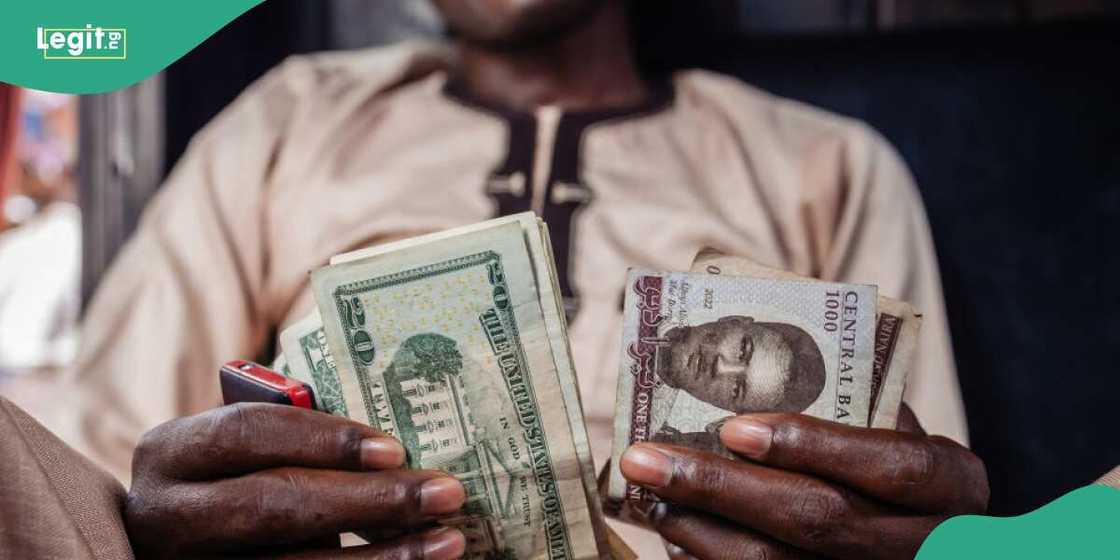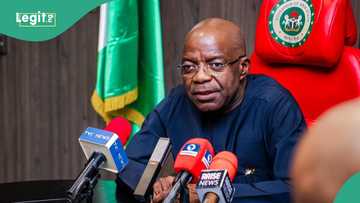CBN: 16 Banks Meet CBN Recapitalisation Target, Full List
- The CBN has revealed that 16 banks have successfully met the recapitalisation requirements ahead of the set deadline
- CBN Governor Olayemi Cardoso shared this update while speaking to journalists after the Monetary Policy Committee
- He also shared insight into Nigeria’s external reserves and naira gains in the foreign exchange market
Legit.ng journalist Dave Ibemere has over a decade of experience in business journalism, with in-depth knowledge of the Nigerian economy, stocks, and general market trends.
The Central Bank of Nigeria (CBN) has announced that 16 banks have fully met the recapitalisation as on Tuesday, November 25, 2025.
Olayemi Cardoso, CBN governor, stated this as he addressed journalists after the 303rd Monetary Policy Committee (MPC) meeting in Abuja.

Source: Facebook
CBN's recapitalisation drive is progressing
Cardoso also revealed that another 27 banks are in the process of raising capital.
He noted that the CBN is closely monitoring developments to ensure the exercise stays on track and strengthens the financial sector.
The apex bank urged lenders to continue implementing policies and initiatives that will drive the successful completion of the recapitalisation process.
Access Holdings, Zenith Bank, GTBank (GTCO), Ecobank, Stanbic IBTC, Wema Bank, Providus Bank, Globus Bank, Premium Trust Bank, Greenwich Merchant Bank, Jaiz Bank, Lotus Bank, Polaris Bank, Unity Bank.
Others are Fidelity Bank, and Union Bank (Merged with Titan Trust Bank) as the banks that have meet the capital requrements ahead of the March 31, 2026, CBN recapitalisation deadline.
Many of the banks have raised funds via share capital offers, bond issuances, and private placements. Union Bank merged with Titan Bank to cross the hurdle.
The early compliance demonstrates resilience in a tough economic environment and sets the stage for a stronger, more competitive banking sector.
For customers, this could mean safer banks, better credit options, and a financial system ready to support Nigeria’s $1 trillion economy ambition
CBN maintains MPR at 27%
The Governor announced that the Monetary Policy Rate (MPR) will remain at 27 percent, with the asymmetric corridor adjusted to +50 and –450 basis points.
Other parameters, including the Cash Reserve Ratio (CRR) of 45 percent and liquidity ratio of 30 percent, remain unchanged.
Cardoso justified the decision, citing the continuing slowdown in inflation, which fell to 16.05 percent in October from 18.02 percent in September.
He also highlighted gains in the foreign exchange market, the exit from the FATF Grey List.

Source: Getty Images
On Nigeria’s removal from the FATF Grey List, Cardoso said the achievement demonstrates strong collaboration among agencies like the CBN, NFIU, SEC, EFCC, and Ministry of Finance.
The exit, he explained, enhances foreign investment, improves correspondent banking relationships, and reduces costs for remittances.
For naira, he said the spread between official and parallel market rates has narrowed to 2% from around 60% in the past.
Nigeria’s external reserves, he revealed, have surged to $46.7 billion.
Banks with highest saving rate
Earlier, Legit.ng reported that the CBN has released the latest savings deposit rates for Deposit Money Banks (DMBs) and Merchant Banks in the country.
The new rates, which are subject to change, reflect the current Monetary Policy Rate (MPR).
A bank savings rate is the percentage of your deposited money that a bank pays you for keeping your funds there. It is a way for banks to encourage customers to save.
Source: Legit.ng





